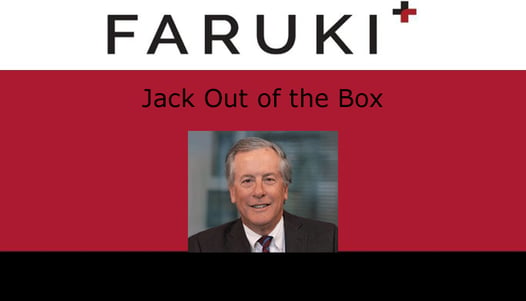- January 28, 2025
- Jack Greiner
- Jack Out of the Box
 A plaintiff in a copyright infringement suit recently got some bad news when the court refused to sanction Google for its failure to remove allegedly infringing videos from YouTube. The problem for the plaintiff was that Google wasn't a party to the underlying suit, and plaintiff had no evidence that Google acted in concert with the infringing defendant.
A plaintiff in a copyright infringement suit recently got some bad news when the court refused to sanction Google for its failure to remove allegedly infringing videos from YouTube. The problem for the plaintiff was that Google wasn't a party to the underlying suit, and plaintiff had no evidence that Google acted in concert with the infringing defendant.
Future Motion, the plaintiff, develops, manufactures, markets, and sells a line of self-balancing electric skateboards and related items. In November 2023, Plaintiff sued Tony Lai, who owned a business called Floatwheel. Future Motion alleged that Lai and Floatwheel infringed four of Future Motion's patents on its skateboard technology by manufacturing, importing, and selling Floatwheel self-balancing electric skateboards to American customers.
Floatwheel did not attend preliminary proceedings, and so it was not there to object to an injunction issued by the court. Part of that injunction provided:
IT IS HEREBY FURTHER ORDERED that, in accordance with the Court's inherent equitable power to issue provisional remedies ancillary to its authority to provide final equitable relief, any internet service provider including but not limited to any web hosting company, domain name registry, domain name registrar, ecommerce service provider, and/or video platform provider having notice of the Court's Order must (1) take any and all action necessary to remove the infringing content from websites having content controlled by Defendant, or alternatively to disable access to the website; and (2) provide notice of compliance to Future Motion's counsel within five (5) business days of receipt of notice of this Order. This includes but is not limited to the following specific examples:
6. Any video platform provider, including but not limited to Google LLC doing business as YouTube, must promptly upon receipt of a copy of this Order either disable public access to (i) the entire Floatwheel YouTube channel at https://www.youtube.com/floatwheel or (ii) to all individual videos teaching viewers how to make and/or use a product that infringes Future Motion's patents, including but not limited to . . . 48 videos [listed below with titles and URLs] currently hosted at the YouTube channel https://www.youtube.com/floatwheel.
The Order laid out the penalty Google would face if it violated the injunction:
Pursuant to this Court's inherent powers, any person or entity failing to comply promptly with this Order, including but not limited to any domain name Registrar, e-commerce service provider, video platform service provider (including Google LLC doing business as YouTube), freight forwarding service provider, or logistics company (including but not limited to those enumerated above) shall be subject to sanctions for civil and/or criminal contempt.
Google blocked US users access to the 48 videos referenced in the injunction, but ultimately, the court amended its Order and required to Google to disable the entire channel. When Google failed to do so, Future Motion asked the court to impose sanctions. Google objected and the court agreed with Google.
Future Motion failed to overcome two hurdles in its effort to recover sanctions. First, Google was not a party to the injunction hearing. It had no opportunity to object, or argue against the imposition of sanctions. For this reason, the court lacked jurisdiction to impose the Order against Google.
Future Motion tried to overcome this hurdle by arguing that Google, in failing to disable the channel, "aided and abetted" the infringement. But this argument failed because Future Motion didn't have the facts on its side. As the court noted:
Google merely hosted Defendant's channel as it would any other of its channels. It did not contract with Defendant, nor has Plaintiff presented any evidence that Google "had any contact with [Defendant] after the injunction was issued." Moreover, just because Google was "technologically capable of removing [Defendant's videos] does not render its failure to do so aiding and abetting." Id. The Court finds that Google's passive involvement of hosting does not support—especially not by clear and convincing evidence—that it consciously and culpably participated in Defendant's infringing conduct.
Sometimes a great theory falls apart because the facts simply don't support it. That is the lesson Future Motion learned the hard way here.
